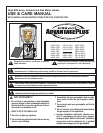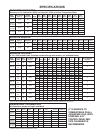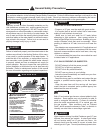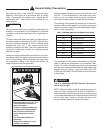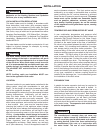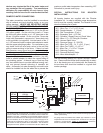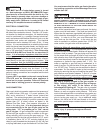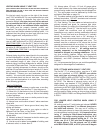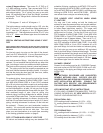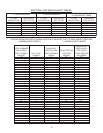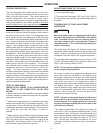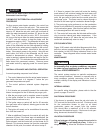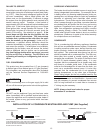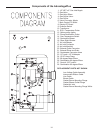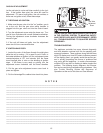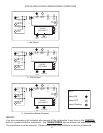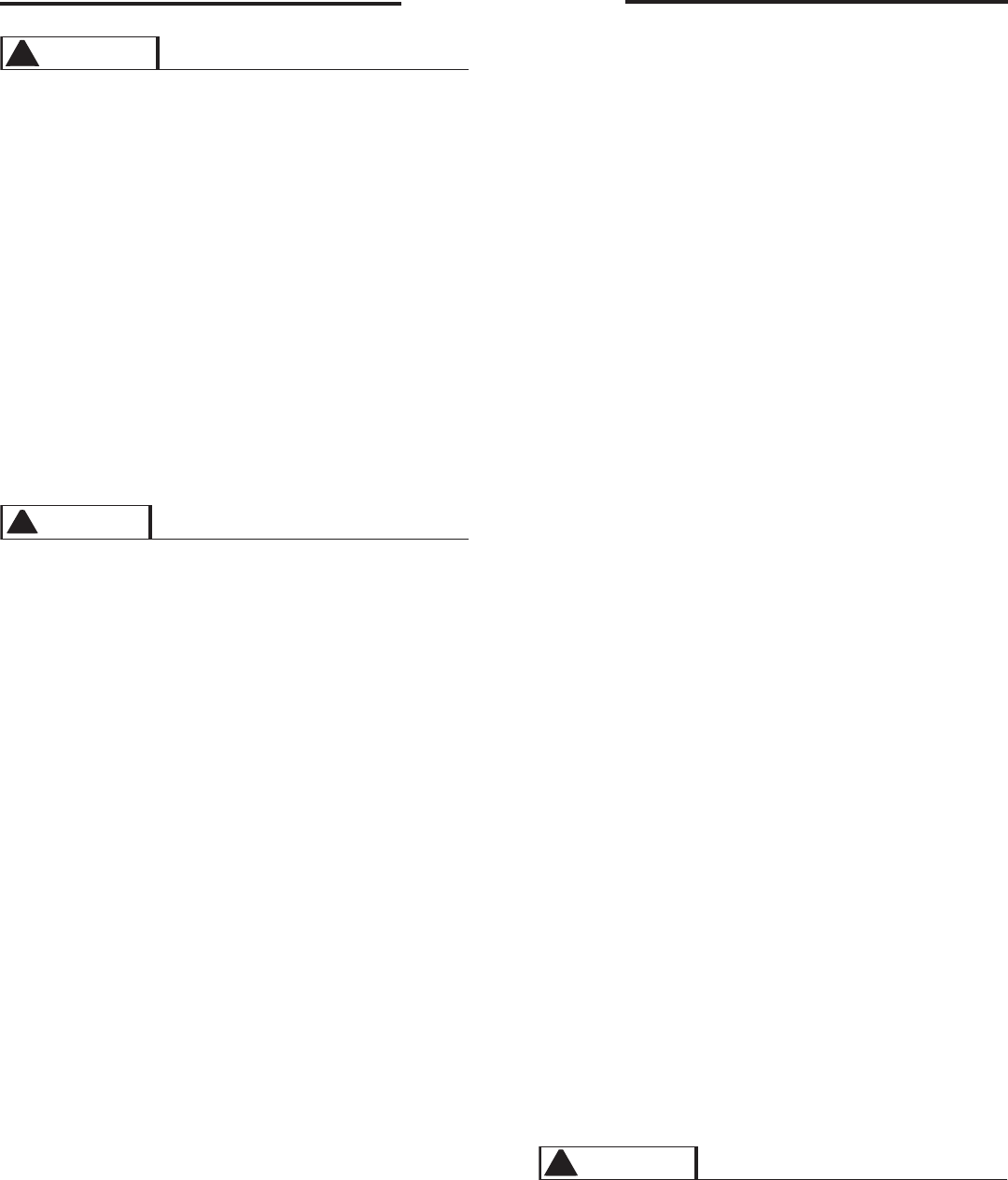
Read and review this entire manual with special
emphasis on the Venting Sections and Operation
Sections prior to any installation work.
LOCAL INSTALLATION REGULATIONS
This water heater must be installed in accordance with
these instructions, local codes, utility company require-
ments, and/or in the absence of local codes, the latest
edition of the American National Standard / National Fuel
Gas Code, a copy of which can be purchased from either
American Gas Association, 1515 Wilson Blvd., Arlington,
VA 22209 as booklet Z223.1 or National Fire Prevention
Association, 1 Batterymarch Park, Quincy, MA 02269 as
booklet NFPA 54.
The water heater must be located or protected so it is not
subject to physical damage, for example, by moving
objects, area flooding, etc.
The water heater should not be located in an area
where leakage of the tank or connections will result
in damage to the area adjacent to it or to lower floors
of the structure. When such areas cannot be avoid-
ed, it is recommended that a suitable catch pan, ade-
quately drained, be installed under the water heater.
The pan MUST NOT restrict the flow of combustion
air flow.
NOTE: Auxiliary catch pan installation MUST con-
form to the applicable local codes
LOCATION
Choose a location for your water heater centralized to the
piping system, along with consideration to vent pipe
length. As the length of vent pipe increases, the firing
rate of the appliance decreases. You must also locate
the Advantage Plus where it will not be exposed to below
freezing temperatures. Additionally, you will need to
place the water heater so that the controls, drain,
inlet/outlet, and gas valve are easily accessed. This
appliance must not be installed outdoors, as it is certified
as an indoor appliance, and must be kept vertical and on
a level surface. Also, care must be exercised when
choosing the location of this appliance where leakage
from the relief valve, leakage from related piping, or leak-
age from the tank or connections, will not result in dam-
age to the surrounding areas or to the lower floors of the
building. A water heater should always be located in
an area with a floor drain or installed in an adequate-
ly drained catch pan suitable for water heaters.
Proper clearance must be provided around the
AdvantagePlus as follows: Sides, bottom, top, and back
are 0" (zero clearance). Front of the appliance needs 24"
service clearance minimum. This front service may be
achieved by a non-rated or combustible door or access
panel; providing the 24" service clearance is achieved
when the door is opened or panel is removed. This water
heater must not be located near flammable liquids
such as gasoline, adhesives, solvents, paint thin-
ners, butane, liquefied propane, etc. as the controls
of this appliance could ignite those vapors, causing
an explosion.
TEMPERATURE AND PRESSURE RELIEF VALVE
A new combination temperature and pressure relief
valve, complying with the Standard for Relief Valves and
Automatic Gas Shutoff Devices for Hot Water Supply
Systems, ANSI Z21.22, must be installed in the opening
provided on the water heater at the time of installation.
No valve is to be placed between the relief valve and the
water heater. For circulating tank installation, the sepa-
rate storage tank(s) must have similar protection. The
pressure rating of the relief valve must not exceed the
maximum working pressure as marked on the front of the
water heater. The Btu/h rating of the relief valve must
equal or exceed the Btu/h input of the water heater as
noted on its rating plate. Connect the outlet of the relief
valve to a suitable open drain. The discharge line must
pitch downward from the valve to allow complete draining
(by gravity) of the relief valve and discharge line, and
must be no smaller than the outlet of the relief valve. The
end of the discharge line should not be threaded or con-
cealed and should be protected from freezing. No valve
of any type, restriction or reducer coupling should be
installed in the discharge line. Local codes shall govern
the installation of the relief valves.
EXPANSION TANK
A potable hot water expansion tank may be required to
offset the water expansion as the water is heated. In
most city plumbing systems, the water meter has a no
return or back flow device built into the system to prevent
back flowing of water back into city mains. Back flow pre-
venters may be found on all incoming water supplies.
Under these circumst
ances, you will need a hot water
expansion tank listed for potable water use. The expan-
sion tank should be located on the cold inlet piping close
to the water heater. The expansion tank must be suit-
able for hot potable water.
The manufacturer’s warranty does not cover any
damage or defect caused by installation or attach-
ment or use of any special attachments such as ener-
gy saving devices (other than those authorized by
the manufacturer) into, onto, or in conjunction with
the water heater. The use of such unauthorized
5
INSTALLATION
WARNING
!
CAUTION
!
WARNING
!



